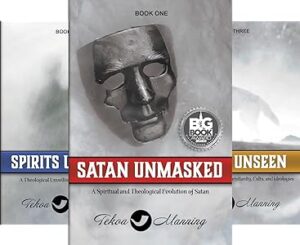The Number 5 and the Story of Joseph go hand in hand:
Last week, we learned that Joseph was hated and due to his dreams, he was hated more. His brothers hated him and could not speak a kind word to him, and they were jealous of him. How many of you have felt like Joseph at one time or another? Maybe some of you have felt like one of Joseph’s brothers? Before I get to the number 5 mentioned throughout this portion, let’s look at Joseph and also what it must have been like for his brothers to live with what they had done.
What do we know about this larger-than-life man?
Joseph was thrown in a pit by his brothers while they discussed murdering him. Yes, murder was in their hearts toward their brother. Joseph was sold. Joseph was sexually assaulted by Potiphar’s wife. He was falsely accused of an act he did not commit, and imprisoned.
I’m sure Joseph wondered if even one of his brothers had looked for him. Had any of them confessed their sins to his father? Year after year, while Joseph’s father, Jacob, wept over Joseph and pondered over his bloody coat, I am sure many days Joseph, and his dreams were mentioned by Jacob while his brothers listened without confessing or repenting. But let’s imagine one of them could not contain his guilt and went to Jacob in tears which led to action and searching the land of Egypt to find Joseph. This would change the whole story.
No Joseph.
No Master Dream interpreter.
No grain stored up during the season of skinny cows.
The whole story would have been altered, but it could not be.
Still, we often wonder if Joseph’s brothers had any remorse or guilt. If you have lost a child, you remember when they left this earth. It was 22 years before Jacob would see his beloved son. I keep going back to all the brothers and what it must have been like for them to hold on to such a huge secret. Have you ever held on to a secret that was burdensome, weighty, and one you could not share? Joseph’s brothers must have feared Joseph might escape, get released, show up and expose their sins to their father.
After Joseph reveals his identity, and has his brothers go to get their father Jacob, do they ever confess their sin to their father then? We don’t read that, but we do know that his brothers have to tell their father that Joseph lives. Joseph is not dead but alive. Yes, and so is our Messiah Yeshua. He lives. There are so many hidden things to chew on in this portion.
Joseph is a popular name in the Bible. Joseph was the earthly father of our Messiah Yeshua, and he was there at his son’s birth. Another man named Joseph comes for his body at his death. Bookends. In this Torah portion, Miketz, Joseph, Jacob’s son by Rachel, faces his brothers who hated him and threw him in a pit. Now Joseph seeks to play trickery a bit. Joseph accuses his brothers of being spies sent to spy out the land. One of the spies sent by Moses was from the tribe of Issachar. He was Igal, son of Joseph. Last year when reading this Torah portion and the year prior, I kept seeing fives.
Miketz is Hebrew for “at the end.”
Benjamin’s name means son of my right hand/ Son of Strength. We see in reading the New Testament (Brit Hadasha) that goes with this Torah reading that Yeshua is coming to the point of death on the cross. Yeshua has to drink a bitter cup. He tells his Father to take the cup from him, but not his will be done. Joseph places his silver cup in Benjamin’s sack. Yeshua drank a bitter cup, died, and rose again on the 3rd day and eventually ascended to the heavens where He sat on the Right Hand of the Father. “But when Messiah had offered for all time a single sacrifice for sins, he sat down at the right hand of God” (Hebrews 12:10).
Here are some of the Five’s I saw while reading:
Gen 41:34 – Let Pharaoh appoint commissioners over the land to take a fifth of the harvest of Egypt during the seven years of abundance.
- Gen 43:34 – When portions were served to them from Joseph’s table, Benjamin’s portion was five times as much as anyone else’s. So they feasted and drank freely with him.
- Gen 45:6 – For two years now, there has been famine in the land, and for the next five years, there will be no plowing and reaping. (7 years of famine) No plowing or reaping in the last five years of tribulation?
- Gen 45:11 – I will provide for you there because five years of famine are still to come. Otherwise, you and your household and all who belong to you will become destitute.’
- Gen 45:22 – To each of them he gave new clothing, but to Benjamin, he gave three hundred shekels of silver and five sets of clothes. (3 and 5= 8) Outside time.
- Gen 47:2 – He chose five of his brothers and presented them before Pharaoh.
- Gen 47:34 – But when the crop comes in, give a fifth of it to Pharaoh. The other four-fifths you may keep as seed for the fields and as food for yourselves and your households and your children.”
As you can see, there are many fives listed throughout this story of Joseph and the 12 tribes. The number 5 in Hebrew is Chamesh.
The Modern Hebrew name for this letter is hey.
The original pictograph for this letter is a man standing with his arms
raisedup. The Modern Hebrew, and original name for this letter, is hey, a Hebrew word meaning “behold,” as when looking at a great sight. This word can also mean “breath” or “sigh,” as one does when looking at a great sight. The meaning of the letter is behold, look, breath, sigh, reveal, and revelation from the idea of revealing a great sight by pointing it out (Jeff Benner—ancient Hebrew).
The 5th feast is Yom Teruah, Feasts of Trumpets listed in Leviticus 23, and the 5th day of creation where many seeds are being transported over the earth.
Joseph tells Pharaoh to appoint officials to take a 5th of the produce, which was 20%.
Five is the number of grace and the scrolls of the Torah (the 1st five books of the Bible). Joseph is storing up more than grain as a precursor for Yeshua. Benjamin’s portion was five times more than his brothers’. The feasts affiliated with the Messiah’s return is the 5th one, the Feasts of Trumpets or Yom Teruah. This feast occurs in the 7th month of the Hebrew Calendar.
Some keynote things that popped out at me during this reading of Miketz was Genesis 41:35-36, “And let them gather all the food of these good years that are coming and store up grain under the authority of Pharaoh for food in the cities and let them keep it. That food shall be a reserve for the land against the seven years of famine that are to occur in the land of Egypt, so that the land may not perish through the famine.”
The five wise virgins had oil stored up. They were ready and prepared just as Joseph was. They had lamps and oil for light.
“For the commandment is a lamp; and the law “Torah” is light; and reproofs of instruction are the way of life: (Proverbs 6:23).
Yeshua said, “I am the light of the world” (John 8:12, 9:5). We are to be lights shining in a dark world. Egypt was full of darkness but there was light in Goshen. May we have tents of light all over this land and may our Father see it shining brightly.
And Joseph stored up grain in great abundance, like the sand of the sea, until he ceased to measure it, for it could not be measured. (Genesis 41:49).
This verse mimics one given to Abraham concerning the covenant, and as we are looking at the number 5, we must not leave out the name Abraham and Sarah, who both received the 5th letter “Hey” in their names—the breath of Yahweh was added and changed their names as their identity had changed. Abram became Abraham. The Father told Abraham in “Genesis 22:17, “That in blessing I will bless thee, and in multiplying I will multiply thy seed as the stars of the heaven, and as the sand which is upon the sea shore; and thy seed shall possess the gate of his enemies;” (Genesis 22:17).
I love the imagery of these passages and probably more now that I live by the sand. We know that Joseph had no control over the famine, but he did save lives. He told the people that after 7 years of plenty, 7 years of famine was coming.
One commentary A Proper Perspective of Poverty and Prosperity (Genesis 47:13-31) written by author and scholar Bob Deffenbaugh had this to say:
“Joseph accumulated one-fifth of the crops of the land during the abundant years. That left four-fifths of a bumper crop for the Egyptians. Should they not have been storing up grain for the famine as well as Joseph? But it would seem that they thought the years of plenty would go on and on. Why not spend some of this excess profit? They seem to no more have expected the famine to come than the people in Noah’s day looked for a flood. The Egyptians, I believe, were informed that hard times were coming, yet they failed to prepare for them. No wonder they did not complain about Joseph’s handling of this matter and heralded him as a savior.”
We do not want to be as the people in Noah’s day. We must be wise stewards of our gifts and our money and our LAMPS. We must prepare like the 5 wise virgins who had oil in their lamps and excess. Meditate on Joseph and his brothers, his father Israel and who you relate to most in the story. Walk in the room when Joseph reveals himself to them. Can you feel the emotions? The heartbreak? The joy? The relief and the fear?
Blessings!
Tekoa Manning
For more on Joseph, click HERE
New Releases are available in paperback, kindle, and audio. Click HERE


5 is my number (birthday). Interesting story!
I need to know your birthday!